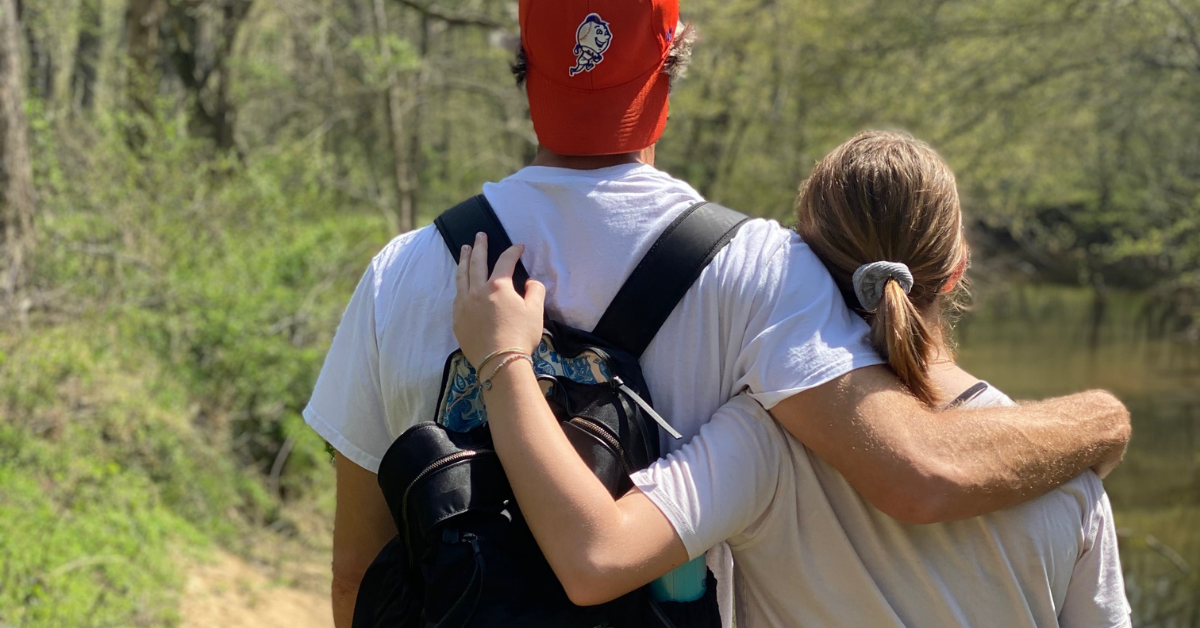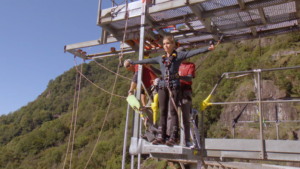This year, we made a public commitment to become better allies. As a family, we want to use our privilege to positively impact the world in any way we can. Talking to our kids about racism is a huge step. We want our kids to help make change in this crazy world we’re living in. So we’re having honest conversations as a family about privilege, diversity, and inclusion. I want to be clear by first saying that we’re not going to be perfect. This is a journey, and we’re all learning. But here are a few things we’ve found helpful.
Our Parenting Advice
Our first step? Have open, honest conversations with your kids about race. Let them ask questions, and don’t make them feel bad for getting something wrong. If they ask a question that you don’t know the answer to, find the answer together. Our kids love to learn, and we have made an effort to create a safe space for them to learn about racism. These conversations can be hard. There is so much going on that’s hard for them to fully understand. It’s important to address moments as they come. If your child or teenager is confused by current events in our nation, it’s important to know that there is a lot going on in our country, but at the end of the day, racism is just wrong, and we won’t put up with it. And we are not going to be quiet about it.
Kids and Unconscious Bias
Another way to start the conversation with your kids is to talk about unconscious biases. An unconscious bias is any stereotype we form without realizing it. And we all have them. A few months ago, we talked with Donald Thompson and Jackie Ferguson of The Diversity Movement about Working On Being A Better Ally. Donald and Jackie told us how deeply rooted unconscious biases can be, and how we must become more aware of them. As we talk with our kids about race, we also want to give them tools to become better allies. Addressing unconscious biases is a big part of that. These conversations can be as simple as asking your kid what they assume about someone based on their appearance, or reevaluating the type of movies and media they’re consuming.
If you’re looking for practical tools, here’s a great list of 21 anti-racism videos to spark conversations with your kids. These videos cover topics from discrimination to protesting in a helpful and engaging way. If your kids are a bit younger, check out this resource of books to help talk to your kids about racism. Representation is a crucial step to helping your kids become more inclusive from a young age, which is why we love this blog on how black art can spark conversations with your kids around race. It includes some awesome picture books about black stories, illustrated by black artists.
Diversity In Media
Are your kid’s TV shows accurately representing the world we live in? These small steps toward inclusion are super important. We’re taking the time to re-evaluate the type of content our kids consume. Representation in media and entertainment really matters. If our kids are only watching TV and movies told from a predominantly white narrative, they aren’t getting the whole picture.
Most of the time, kids are being taught history from a white perspective. We want them to see a more diverse (and more accurate) picture of society. Once it’s safe to be out in public again (here’s looking at you, 2021!) Penn and I want to take our kids to the National Museum of African American History and Culture in D.C. This museum is dedicated to teaching people about African American life, history and culture in the U.S. When talking to your kids about race, make sure you’re using whatever tools you can to show them how a diverse group of people shaped our culture. It’s also important to remember that black people are heroes of their own stories, not just victims of oppression. The more you share black stories and have these conversations about diversity with your kids, the more courageous your kids will be to confront racism when they encounter it in the world.
Remember – You’re Their Role Models
Our kids are learning. Really, we’re all learning. Maybe they’re understanding what racism is for the first time. As parents, Penn and I are committed to creating a safe space for our kids to ask questions and process. But it is super important to remember that you are their role models. Your kids are observing what you say, do, and how you respond. We have to walk the talk. We have to be proactive and make a plan to combat racism in our everyday lives. Part of this journey is taking steps every day to better educate ourselves. We want to help our kids be diversity advocates and seriously anti-racist. And we know this conversation has to continue all year long. It’s bigger than a trending hashtag. It’s a life-long commitment.
Let us know if you have any helpful resources or advice for talking to your kids about diversity and racism. (And thank you to organizations like Sunshine Behavioral Health who provided us their Black Mental Health Resource Guide to start a conversation about how racism and discrimination affect the mental health of the African-American community.)




